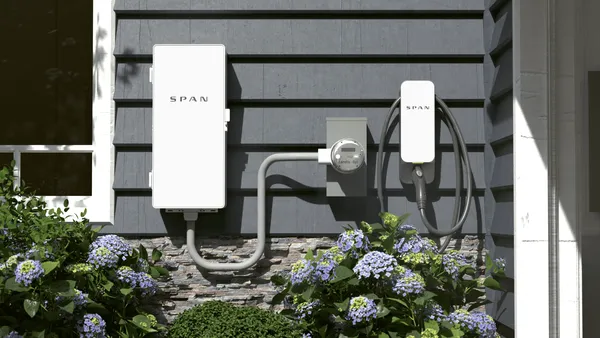Dive Brief:
- Delaware regulators this week officially signed off on the merger of Pepco Holdings and Exelon Corp., meaning the companies need just one more regulatory approval to move forward with the combination of their six utilities.
- Maryland approved the merger last week, leaving only the District of Columbia left to vote on the deal. The Delaware decision was expected since February, when the two companies reached a settlement with regulators.
- After reviewing the Maryland decision, Pepco and Exelon accepted nearly four dozen conditions placed on the merger, including commitments to boost reliabillity and bill credits to customers.
Dive Insight:
It has been a big week for Pepco and Exelon's proposed $6.8 billion merger, with Maryland giving the green light on Friday and now Delaware issuing an order allowing the deal to move ahead.
The companies have not issued a statement on Delaware's decision, but Darryl Bradford, Exelon senior vice president and general counsel, told The News Journal the decision was "heartening" and hoped the merger could close soon.
Following the Maryland decision, the companies said they would need to consider the nearly four dozen conditions regulators attached to the deal, but quickly issued a statement saying they would accept the order and comply with all caveats.
“After a thorough review of the order, we have concluded that it is constructive, but the conditions it imposes – including those to which the companies already committed in our settlement – will also be challenging," Chris Crane, Exelon president and CEO, said in a statement. "It poses some stringent conditions that will be difficult to fulfill, but all of us at Exelon accept the challenge and commit to proving ourselves in an expanded role in Maryland.”
The Maryland order included conditions calling for higher reliability standards, a $100 rate credit for Delmarva and Pepco residential customers and $43.2 million for energy efficiency programs in Prince George’s and Montgomery Counties and the Delmarva Maryland service territory.
A major condition requires Delmarva and Pepco to meet aggressive reliability performance standards from 2016 through 2020, and the utilities are subject to penalties for non-compliance.
If D.C. OKs the merger, it would allow the companies to combine Exelon utilities BGE, ComEd and PECO, with Pepco’s three electric and gas utilities, Atlantic City Electric, Delmarva Power and Pepco.
The nation's capital, however, has been home to some of the stiffest opposition to the merger in any of Pepco's service territories. POWER DC, a coalition of District activists and community leaders, began organizing against the acquisition in January, and since then nearly half of DC neighborhood governments and four DC Council members have come out against the merger.
Last week, the coalition came together to protest the merger on the steps of the Wilson Building — the District's city hall — and called on D.C. regulators to reject the deal. Public comment on the merger is slated to close in the nation's capital on May 27.














